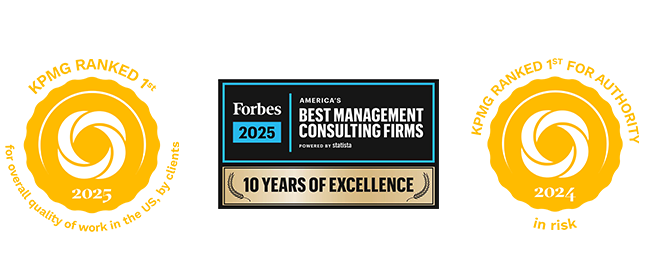6 superpowers of the AI-enabled finance team
Here’s how leading-edge finance teams are using AI to deliver results today—and paving the way for the exciting new AI-driven opportunities ahead.

It seems like everyone is talking about AI’s potential to transform businesses of all shapes and sizes. But how are companies using AI today to actually deliver on all of that transformative promise?
For the answer, look no further than the finance team, who has been the tip of the spear on AI at leading companies for years.

In many ways, AI and the finance team are the business world’s power couple, with good reason: many of AI’s strengths—such as predictive algorithms, data mining, scenario modeling, and process automations—are ideally suited to a wide range of finance functions.
It’s not surprising, then, that in a recent KPMG survey, 83 percent of respondents said they were using AI in at least some way in their financial planning and analysis. And 8 in 10 also reported they were prioritizing investment for AI and generative AI—an exciting new area that advances AI’s human-like capabilities to perform complex tasks like creating forecasts and suggesting new data-driven insights for the real humans to consider.
So while AI’s future potential feels almost unlimited, don’t forget about its game changing impact today.

Maximizing Enterprise Performance
A holistic, enterprise-wide performance management vision—enabled by AI, data, and digital-first capabilities—that empowers the entire organization to move more quickly, improve business outcomes, and deliver more bottom-line value.
Empowering finance at the speed of AI
Read the reportSuperpower #1: Faster close
Here are six ways that AI-enabled finance teams are already harnessing some of the technology’s unique superpowers to deliver value-generating results.
Does anyone miss the never-ending closing cycle? We didn’t think so. Using AI functionality to streamline the heavy lifting of the closing processes (monthly, quarterly, annually) was one of the earliest adoptions of AI in the business world, and companies continue to use AI tools to further optimize those cycles. AI helps finance teams close the books faster by:
- Reducing manual processes through enhancements like automated data extraction, reconciliation, and data entry
- Expediting the review and approval process through cloud-based collaborative workflow tools that drive the review cycle by tasking each user, setting deadlines, and moving the process from one reviewer to the next
- Automating many of the related compliance, risk, and audit reporting functions, including critical areas like cybersecurity monitoring and generating audit reports that are customized to match specific compliance requirements
- Identifying potential reporting gaps or errors with robust anomaly detection algorithms that flag deviations from expected behavior, inconsistent data patterns, and even potential fraud risks
And those are just a few examples. In our research and work with clients, we’ve seen organizations that have been able to reduce manual processes by 70 percent or more while cutting the closing timeline by 50 percent.
Superpower #2: Improved forecast accuracy

AI’s predictive models and algorithms are another sweet spot for the finance team. These proven tools are the engine room of intelligent forecasting, allowing organizations to do more advanced scenario-modeling based on robust historical data that more accurately predicts future outcomes. And the best part: the more data, scenarios, and actual outcomes these AI tools see, the more intelligent their forecasts get. It’s like having a high-performing team member who can do high-level analytical work and full-time training simultaneously. The results we have seen in this area are significant, including 60 percent-plus improvements in forecast accuracy, forecast cycle times that are cut in half (or more), and related revenue increases of as much as 10%.
Superpower #3: Enhanced data insights
Having robust data is table stakes for every organization today. But being able to do something with that data is where the real work begins. Enter AI, with its many capabilities to streamline data extraction, cross-check it for inconsistencies, and mine it for insights. Not to mention consuming and analyzing all that copious data at volumes that have long since outpaced human capabilities. One of AI’s unique powers is its ability to pull in different types of unrelated data streams to further increase overall forecast accuracy. For example, AI tools can cross-reference internal data with external data signals—such as weather forecasts or foot-traffic patterns in specific markets—to further sharpen the accuracy of its insights. In fact, in our research, 8 in 10 leading companies are now incorporating external data into their decision making.
Superpower #4: Identifying risks and opportunities

In addition to enhancing traditional data-driven tasks like forecasting and reporting, AI also offers companies powerful tools to rapidly identify outlier data patterns that just don’t look right. In many cases, those anomalies may be signs of risks—from cybersecurity to more macro changes that threaten long-standing market positions. But in a few cases, these “what happened here?” patterns may be signs of new market opportunities as well. Established AI tools like large language models (LLMs) and natural language processing (NLP) applications can scan a wide range of data sources—news reports, videos, social media, and more—to develop new market insights that help business leaders quickly understand and evaluate new opportunities.
Superpower #5: Elevating finance
What can your finance team do with more time for analysis and insights and less time spent on collecting, processing, emailing, and reconciling? Well, in our research, we’ve seen that leading-edge, AI-enabled finance teams have been able to triple the time they can now spend on high level analytics and decision support. And, as a best practice, they are using that time to collaborate with teams across the enterprise as they move finance from business function to business partner.
Superpower #6: First-mover on generative AI
Given its proven track record on all things AI to date, the finance team is now perfectly positioned to lead the organization on proving out the much-discussed potential of the next big thing in AI: generative AI. Here again, many of generative AI’s unique capabilities—including creating actual forecasts and closing reports that match human-level outputs, working from both structured and unstructured data—seem uniquely designed for the finance team. But more importantly, the finance team’s experience with AI over the last decade make it well-suited to help the organization navigate the potential risks of this powerful, but still emerging new AI technology.
Subscribe to CFO Real Insights
Discover KPMG CFO Real Insights, designed to help improve business performance across the enterprise and in your finance organization.
Explore more

Solved: 5 common enterprise performance challenges
From AI-enabled forecasts to robust data to faster closes, here’s how forward-looking companies are eliminating entrenched roadblocks.

Next generation of service delivery models
Explore how GenAI is expected to revolutionize service delivery models and drive business value.

Supercharge your Finance workforce with GenAI
Create a roadmap for success

2023 KPMG Generative AI Survey
An exclusive KPMG survey shows how top leaders are approaching Generative AI

6 superpowers of the AI-enabled finance team
Here’s how leading-edge finance teams are using AI to deliver results today—and paving the way for the exciting new AI-driven opportunities ahead.
The #1 firm for consulting quality in the US

In a recent survey of clients by Source, KPMG was ranked the #1 firm for quality of work and recognized as the leading authority in risk consulting in the US. The firm was also named one of America’s best management consulting firms by Forbes.
1: Source Perceptions of Consulting in the US, 2025
2: Forbes Media LLC, 2025
3: Source Perceptions of Risk Firms in 2024
Meet our team

